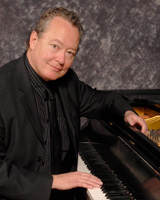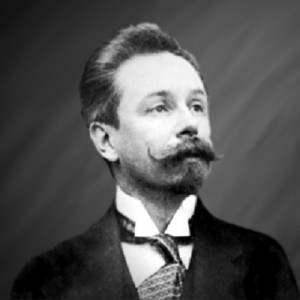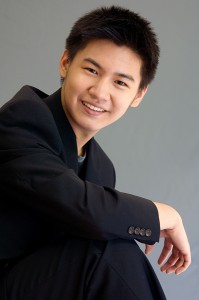This year marks the 100th anniversary of the death of Alexander Scriabin. To commemorate the occasion, University of Utah pianist Jeffrey Price will play an all-Scriabin program this Sunday evening.
In a phone interview with Reichel Recommends, Price said he’s wanted to do a recital devoted to the Russian composer for some time. “I’ve been working on the music for three or four years and I thought 2015 would be a good year to do it.”
The recital, part of the U.’s Sundays@7 series, includes four sonatas (no. 4 in F sharp major, op. 30; no. 7, op. 70, White Mass; the nearly atonal no. 10, op. 70, his final sonata; and no. 5, op. 53, in one movement) along with the shorter, and lesser known, pieces Vers la Flamme (Toward the Flame) and the Prelude and Nocturne for the Left Hand. Price has also included the Etude in D sharp minor, op. 8, no. 12, unquestionably Scriabin’s best known work for the piano.
“The program is a good retrospective,” Price said, noting that the first part of the program contains music that is fairly conventional and very romantic. It’s not until the Fourth Sonata that Scriabin starts developing his own, distinctive voice as a composer. “The Fourth is a pivotal work. It’s here where he starts to expand tonality through chromaticism. It’s also one of his first pieces on a mystical subject. After the Fourth, all of his sonatas are mystical.”
The Sonata No. 5, which will close the recital, is the biggest of all the sonatas and the most virtuosic. “Sviatoslav Richter considered it the most difficult piece ever written,” Price said. “I don’t find it that difficult, but I’ve been working on it for 40 years.”
Pianists can dispute how challenging Scriabin’s works are, but there is no question that they place great demands on the performer. Scriabin was a phenomenal pianist and that is reflected in his piano works. “He could learn almost any music at sight,” Price said. “He was an amazing pianist who wrote virtuosic music but who, at the same time, considered virtuosity in itself vulgar and stupid.”
Price feels that Scriabin’s music, both his piano pieces and his orchestral works, hasn’t received the due it deserves. “I think he is an extraordinarily great composer who has been seriously underrated by the musical community generally. His innovations in harmony are amazing, and his innovations and achievements in form and structure are astounding.
“As I work on these pieces I am continually amazed at him as a composer and as a master of color. The sonatas in particular are some of the greatest works of art and of architecture that we have.”
- CONCERT DETAILS
- What: Sundays@7 with pianist Jeffrey Price playing an all-Scriabin program
- Venue: Libby Gardner Concert Hall, University of Utah
- Time and Date: 7 p.m. March 8
- Tickets: Free



